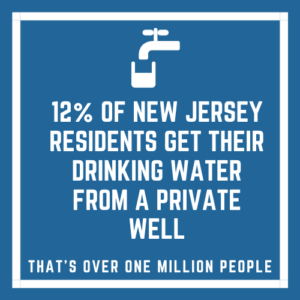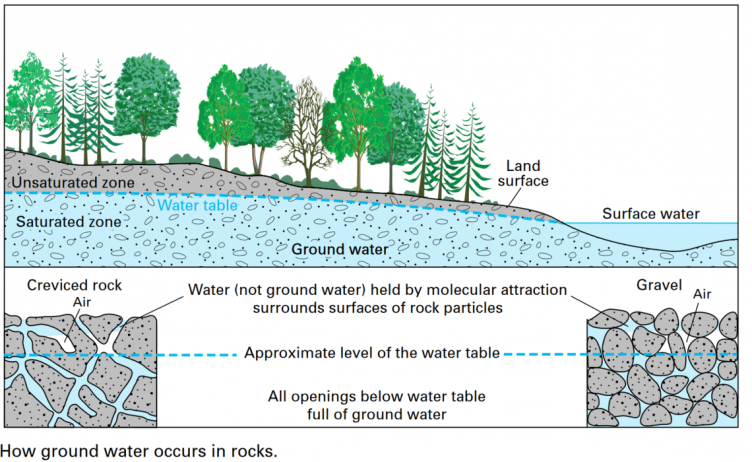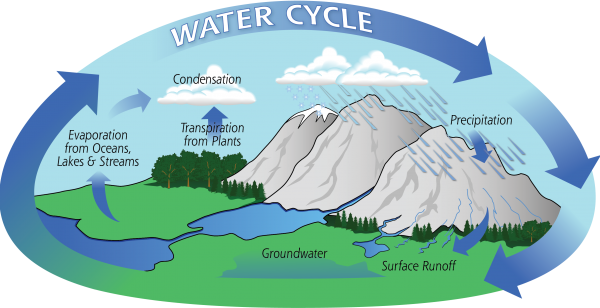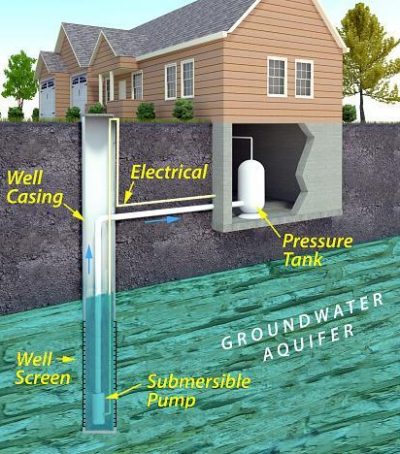
Groundwater and Private Wells
In New Jersey, about 12% of the population rely on a private well for their drinking water. That’s about 1.1 million people. They receive their water from an underground aquifer that is filled with water. Many people are unsure about how a well operates or how to properly care for one. This will provide some background information on what it means to have a private well for drinking water.
What is an aquifer?
An aquifer is the formation of rock or sediment that contains groundwater. For example, think of digging in the sand at the beach; once you reach a certain depth, you will hit water. The same can be said for the land your house sits on.
Are there different kinds of aquifers?
Yes, there are typically two types; unconsolidated and consolidated. For example, an unconsolidated aquifer is one that is made up of material like gravel or sand. Those aquifers are typically found in the southern region of New Jersey. Consolidated aquifers are made up of bedrock. The water makes its way through cracks and fissures within the rock to fill all available space. These aquifers are typically found in the northern region of New Jersey.
How does the water get into the aquifer?
Water makes its way down into the aquifer by a process called groundwater recharge. This happens when the rain or any type of precipitation seeps into the ground and fills in the open crevices as a part of the water cycle.
Where can I find out specifics about the aquifer in my area?
More information about the specifics of the aquifer in your area can be found on the New Jersey Geological Survey website.
How does surface water, such as a lake, influence my nearby well?
An older shallow or poorly constructed well located near a water body may be at higher risk because it is connected to surface water through the groundwater. Wells with inadequate casing length, or casing and grout deterioration are also at higher risk to contamination from septic tank leaching or other contaminants. Make sure your well has been properly installed, maintained, and is undergoing routine testing. Please refer to the Water Quality Concerns for Lakefront Communities fact sheet for more information. You may be at risk if your well:
- Was constructed prior to 1996 (prior to current
protective construction standards) - Is a hand-dug well composed from brick, stone, or
concrete rings. - Has significantly lower water levels or dries up when
nearby surface water levels decline.
What are the different kinds of wells?
There are two types of potable wells: screened wells in unconsolidated aquifers and bedrock wells in consolidated aquifers. The most common type of well in New Jersey are drilled bedrock wells. The well casing (usually 4-6 inches diameter and made of PVC or steel) extends from just above the surface to a short distance into the bedrock. The borehole continues down into the aquifer below the casing. The fractures in the bedrock supply the water to the well when it is pumped. Contamination can get into a drilled bedrock well if it wasn’t properly grouted at the surface, the aquifer is too close to the surface, or the soil at the surface is coarse and allows for significant infiltration.
There are sand and gravel wells, driven wells, hand dug wells, and large diameter dug and bored wells. These are less common in New Jersey, but more information can be found on these well through the USGS website.
What are the different components of a well?
A well consists of many different components such as the casing, well caps, well screens, pitless adapters, pumps, and pressure tanks. More information about these different components can be found on the USEPA website.
Where can I find more information about wells?
The Private Well Class is an in depth, free online class to educate well owners about their well, which was created through a collaboration between the Rural Community Assistance Partnership (RCAP) and the Illinois State Water Survey at the University of Illinois Urbana-Champaign. Funding was provided by the US EPA. More information can also be found on WellOwner.org. Please visit the Additional Resources page for a list of other helpful websites to learn more about your well. Please visit N.J.A.C. 7:9D for specific questions regarding well construction in NJ.



